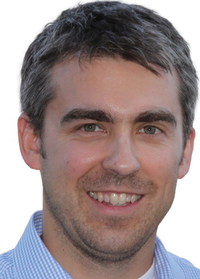Wednesday, December 26, 2012
What Mattered in 2012: Erik Rannala of MuckerLab

For the last week of the year, we're featuring the thoughts and reflections of some of the movers and shakers of Southern California's high tech community. We asked the same four questions of a variety of top technology entrepreneurs, investors, and others, to hear what they're thinking about, and are sharing it here over the next week.
Today, we're featuring Erik Rannala, founder of MuckerLab, the startup accelerator focused on incubation stage Internet, software, services, and media businesses here in LA.
1. What was the biggest news for you/your firm this year?
All 8 of the companies from our inaugural class of MuckerLab went on to raise follow-on funding -- many from some of the best venture firms like Founders Fund, First Round Capital, NEA, Lightbank, Greylock Partners, Mohr Davidow and others.
2. In your opinion, what events, companies, or people made the biggest impact on the technology world this year?
The biggest trend in the last twelve months is the rapid consolidation of major technology platforms across the board (social, cloud, mobile, video, communications, e-book, etc.) toward one or two major dominate players. As these platforms mature and user behaviors stabilize, startups need to be increasingly careful about playing in these sandboxes where their distribution or technology (often both) is dependent on a third party. We are actively hunting for startups who are either ambitiously addressing the Achilles heels of these platforms head on, or disrupting traditionally "non-tech" industries with technology solutions where the dominant players lack tech expertise.
3. What was the biggest lesson you learned over the past year (good or bad)?
Looking back at the most successful entrepreneurs we've met, we see that the single most predictive common denominator is their relentless focus on executing toward product / market fit by specifically de-risking and the riskiest assumption of their product / market fit hypothesis. These entrepreneurs spent a disproportionate amount of their time on that specific objective rather than (perhaps sexier) activities like fundraising, networking, and even building technology.
4. What are the technologies, companies, or things we ought to watch in 2013?
As data like the Startup Genome have begun to point out, LA will continue to emerge as one of the most active tech / startup ecosystems in the world. Following in the footsteps of these entrepreneurs who are building the LA technology community will be additional infrastructure more common in Silicon Valley, such as a more diverse and specialized venture, legal, advisory ecosystem.
See more insights from the Southern California high tech community in our continued series this whole week!